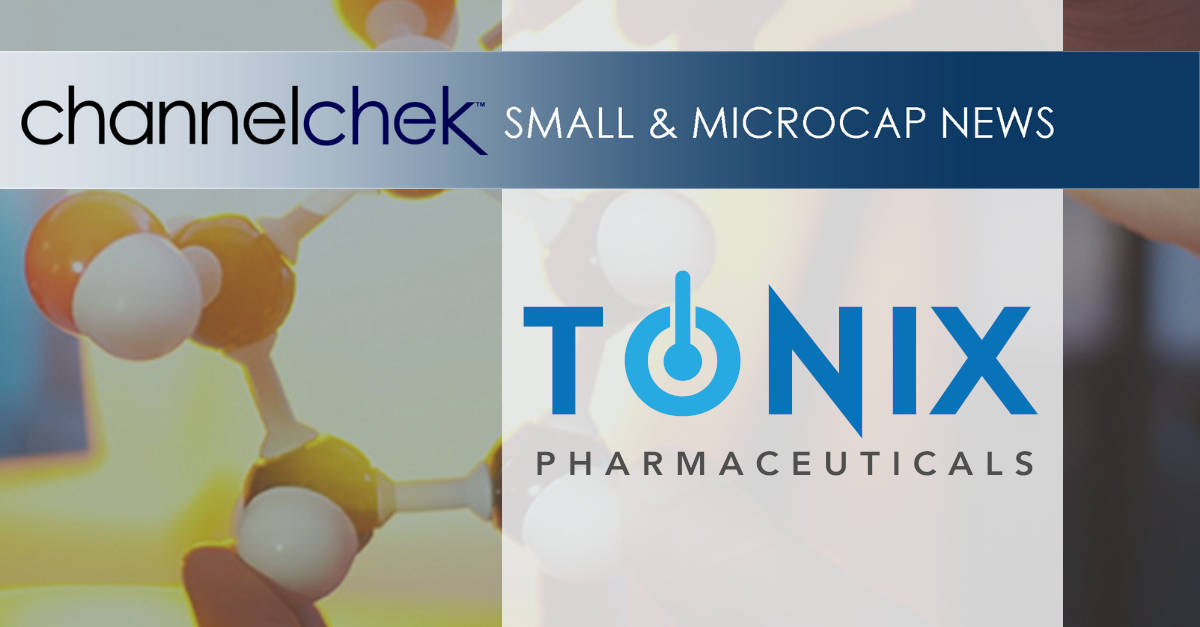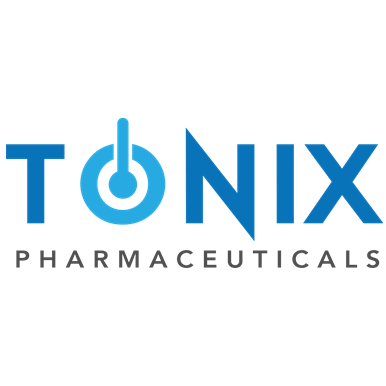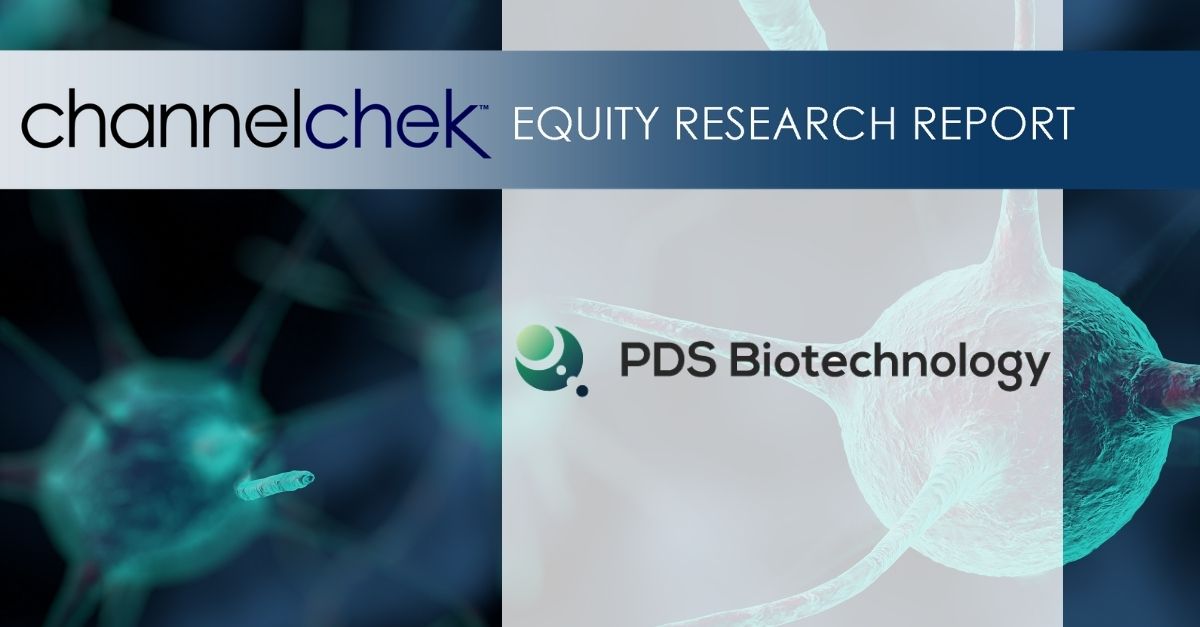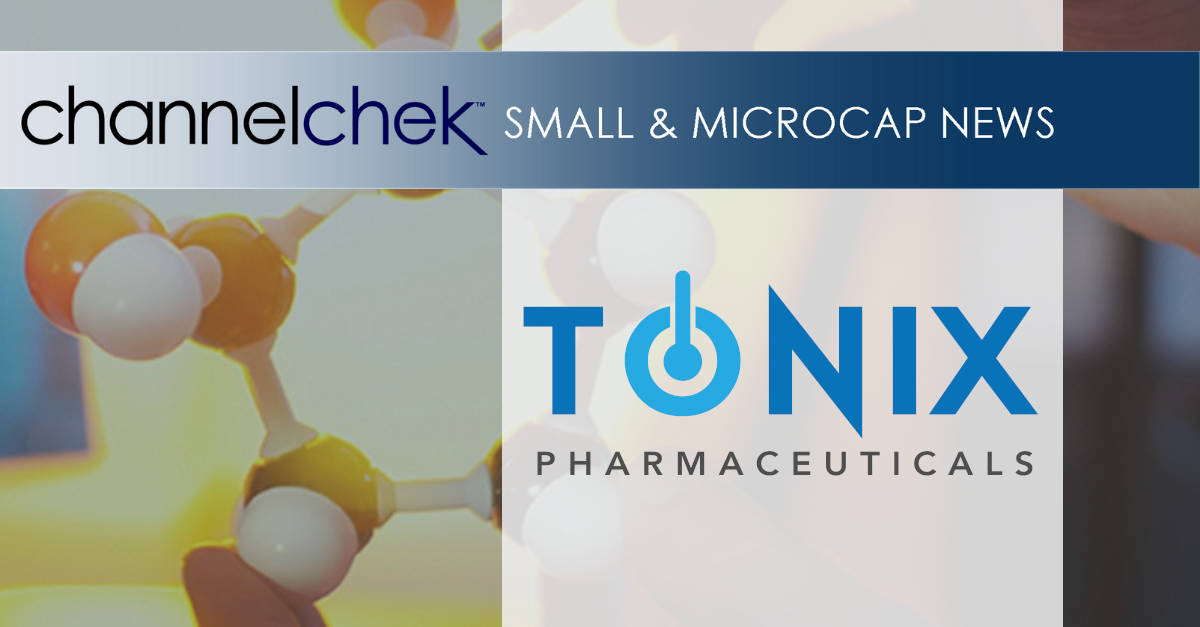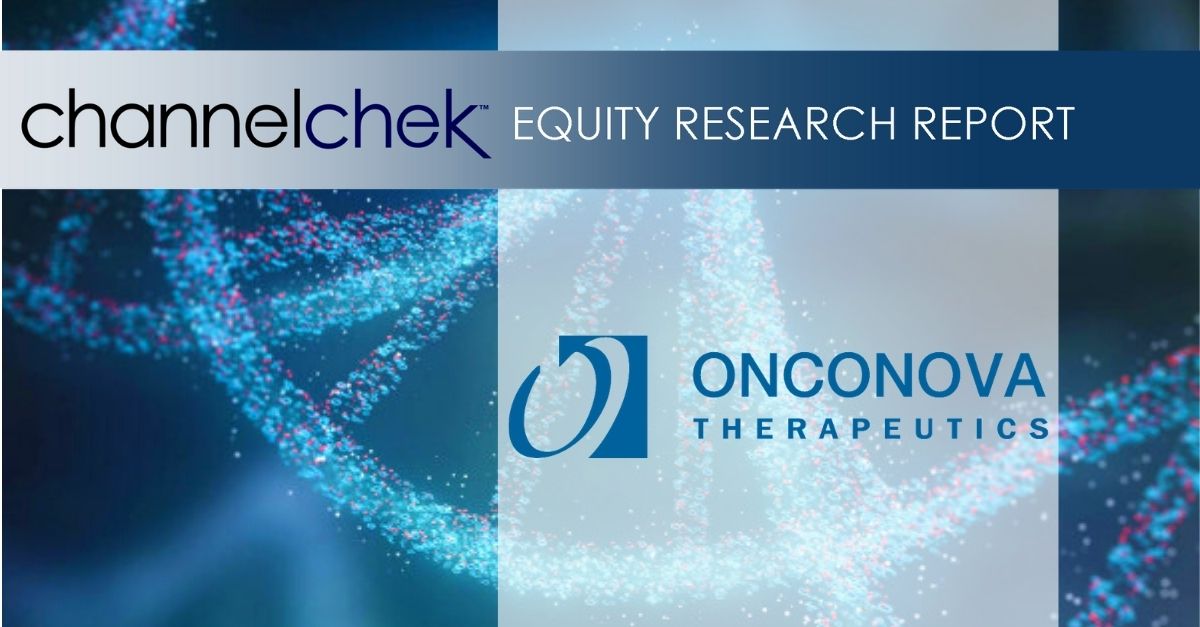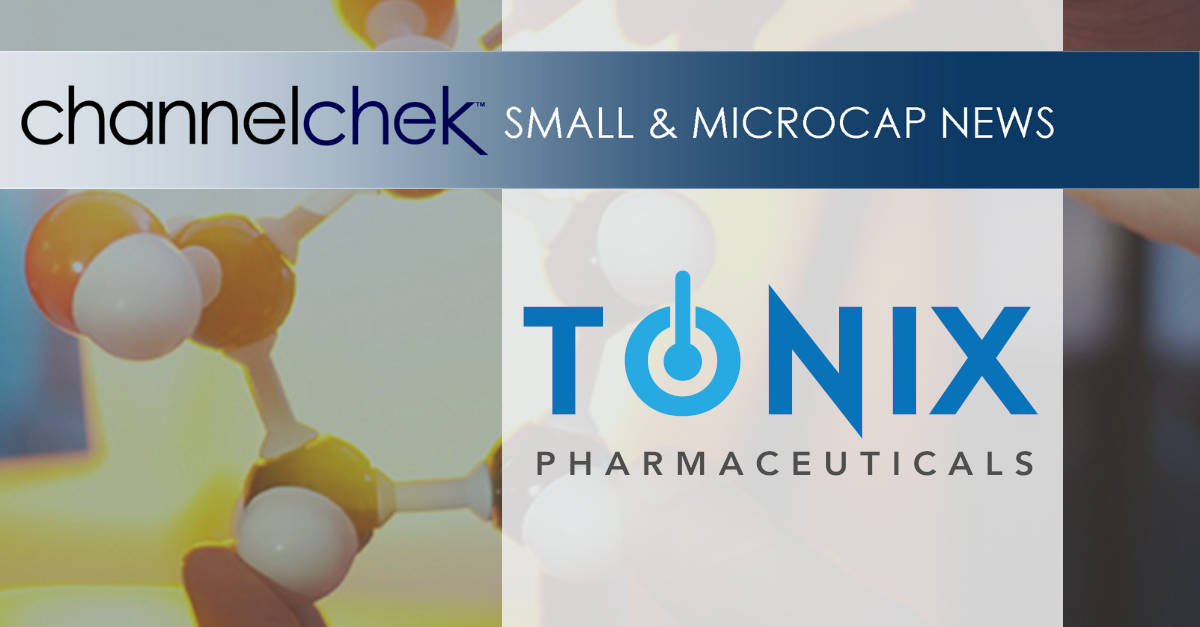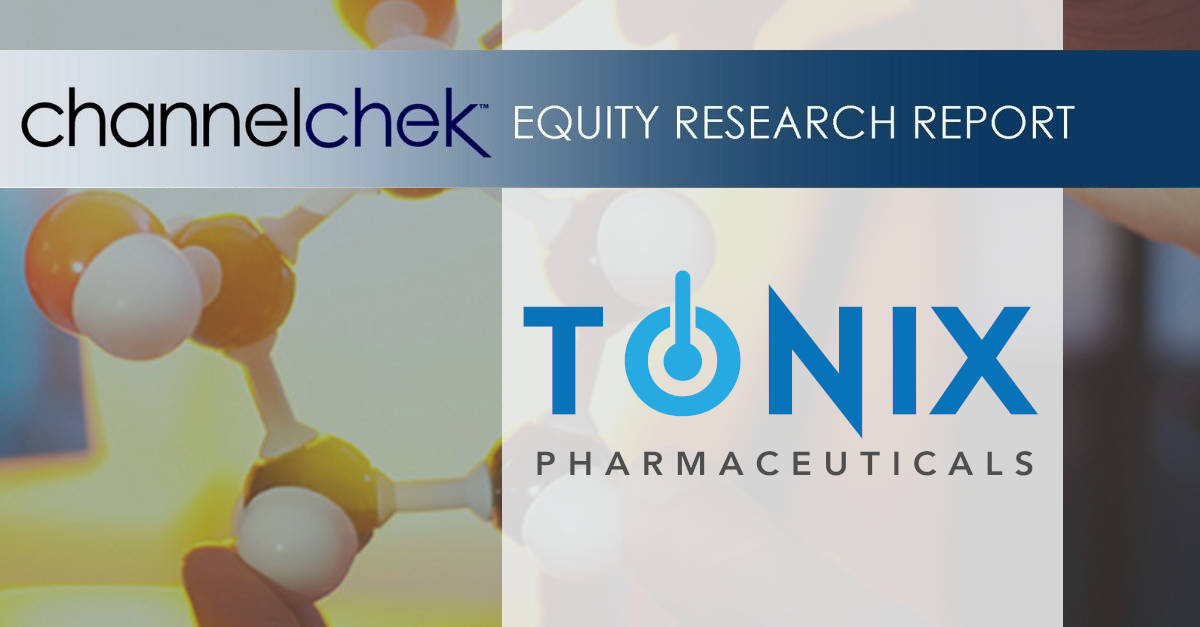Research News and Market Data on TNXP
June 26, 2023 7:00am EDTDownload as PDF
Zembrace® SymTouch® (sumatriptan injection) and Tosymra® (sumatriptan nasal spray) are Indicated for the Treatment of Acute Migraine in Adults
Strategic Acquisition Helps Build Tonix’s Commercial Capabilities and Infrastructure Ahead of Potential Launch of TNX-102 SL for the Treatment of Fibromyalgia
Acute Migraine Products Complement Tonix’s Current Intranasal Clinical Development Program of TNX-1900 for Migraine Prevention
Injection and Nasal Spray Products that Bypass the Gastrointestinal Tract Have the Potential to Provide Treatment Options for Migraine Associated with Nausea
CHATHAM, N.J., June 26, 2023 (GLOBE NEWSWIRE) — Tonix Pharmaceuticals Holding Corp. (Nasdaq: TNXP) (Tonix Pharmaceuticals or Tonix) and its wholly-owned subsidiary Tonix Medicines, Inc. (Tonix Medicines), a clinical-stage biopharmaceutical company, today announced that they have entered into an agreement to acquire two currently-marketed products from Upsher-Smith Laboratories, LLC (Upsher-Smith): Zembrace® SymTouch® (sumatriptan injection) 3 mg and Tosymra® (sumatriptan nasal spray) 10 mg. Zembrace SymTouch and Tosymra are both indicated for the treatment of acute migraine with or without aura in adults. Zembrace SymTouch is the only branded sumatriptan autoinjector professionally promoted in the United States and is designed for ease of use and favorable tolerability with a low 3 mg dose.1,3 Tosymra is a novel intranasal sumatriptan product formulated with a permeation enhancer that provides rapid and efficient absorption of sumatriptan.4,5 Collectively, these products generated product sales of approximately $23 million for the full year 2022.6 Zembrace SymTouch and Tosymra each may provide onset of migraine pain relief in as few as 10 minutes for some patients and currently have patent protection to 2036 and 2031, respectively.1,4
Under the terms of the agreement with Upsher-Smith:
- Tonix Medicines will make an upfront payment of $12 million in cash to Upsher-Smith at closing and an additional $3 million in March 2024, or upon earlier conclusion of the transition services period.
- In addition, Tonix Medicines will pay approximately $10 million in cash to Upsher-Smith at closing to acquire certain product-related inventories.
- To support the transition of the products, Upsher-Smith has agreed to provide certain commercial operations, regulatory and other transition services to Tonix Medicines for up to nine months after closing, in exchange for agreed upon service fees.
- The assets to be acquired include New Drug Applications issued by the U.S. Food & Drug Administration for the products, as well as patents and trademarks related to the products in the United States and in certain countries outside the United States.
- The closing is expected to take place on June 30, 2023.
“Approximately 16% of Americans suffer from migraines, which represents about 40 million patients in the U.S.7,” said Seth Lederman, M.D., Chief Executive Officer of Tonix Pharmaceuticals. “Sumatriptan remains the acute migraine ‘gold standard’ treatment for many patients and continues to represent the largest segment of the market in terms of unit sales.8 With migraine pain relief possible in as few as ten minutes for some patients and convenient administration, we believe both Zembrace SymTouch and Tosymra are well-suited to address the unmet needs of patients using traditional or emerging oral acute migraine medications, particularly for rapid-onset treatment.”
“Despite increasing options for prevention and treatment of migraine, migraine headaches and breakthrough migraine headaches remain significant unmet needs, and can lead to emergency room visits,” said Gregory Sullivan, M.D., Chief Medical Officer of Tonix Pharmaceuticals. “For adults needing acute treatment of migraine, Zembrace SymTouch and Tosymra have the potential to be first-line treatments or ‘rescue’ medications for breakthrough migraines, due to their fast onset of action and high pain-relief rates. For certain patients who present to ERs, Zembrace SymTouch and Tosymra also provide ER staff a straightforward acute treatment option. Additionally, because both of these products bypass the gastrointestinal tract, they have the potential to provide a treatment option for migraines complicated by severe nausea and vomiting.”
“These two products are a strategic fit for our company, and we look forward to working with Upsher-Smith to ensure a smooth product transition. To that end, this transaction includes established manufacturing and supplier relationships that allow for a seamless transition of manufacturing and supply chain responsibilities. The franchise today is supported by managed care contracts covering approximately 200 million lives. During the transition, we expect to secure our own contracts,” said James Hunter, Executive Vice President of Commercial Operations at Tonix Pharmaceuticals and President of Tonix Medicines.
Dr. Lederman concluded, “In addition to the potential growth that these two on-market products represent over time, the acquisition helps build Tonix’s commercial capabilities ahead of the potential launch of our TNX-102 SL product candidate for the treatment of fibromyalgia. In addition, these products align strongly with our TNX-1900 (intranasal potentiated oxytocin) product candidate, in clinical development for the prevention of chronic migraine. This is an important step in the evolution of Tonix into a fully integrated pharmaceutical company.”
Zembrace SymTouch (sumatriptan injection) 3 mg is the only actively promoted brand of sumatriptan autoinjector in the United States (other sumatriptan autoinjector products on the market are Imitrex® and generics to Imitrex®). It has a unique low dose and has demonstrated onset of migraine pain relief in as few as 10 minutes (17% of patients vs. 5% for placebo).9 Zembrace SymTouch also demonstrated migraine pain freedom for 46% of patients (vs 27% for placebo) at 2 hours in a single-attack, double-blind study (N=230).2 Zembrace SymTouch currently has patent protection to 2036. Tosymra (sumatriptan nasal spray) 10 mg employs Intravail® permeation enhancer technology and is pharmacokinetically equivalent to 4 mg subcutaneous sumatriptan.3,4 Tosymra delivers migraine pain relief in as little as 10 minutes with just one spray for some patients (13% vs. 5% for placebo).4,9,10 Tosymra currently has patent protection to 2031.
About Migraine
Nearly 40 million people in the United States suffer from migraine6 and it has been recognized as the second leading cause of disability in the world.11 Migraine is characterized by debilitating attacks lasting four to 72 hours with multiple symptoms, including pulsating headaches of moderate to severe pain intensity often associated with nausea or vomiting, and/or sensitivity to sound (phonophobia) and sensitivity to light (photophobia).12
References:
- Zembrace SymTouch [package insert]. Maple Grove, MN: Upsher-Smith Laboratories, LLC: February 2021.
- Landy, S. et al. Efficacy and safety of DFN-11 (sumatriptan injection, 3 mg) in adults with episodic migraine: a multicenter, randomized, double-blind, placebo-controlled study. J Headache Pain. 19, 69 (2018).
- Brand-Schieber E, Munjal S, Kumar R, et al. Human factors validation study of 3 mg sumatriptan autoinjector, for migraine patients. Med Devices (Auckl). 2016;9:131-137.
- Tosymra [package insert]. Maple Grove, MN: Upsher-Smith Laboratories, LLC: Feb 2021.
- Maggio ET. Intravail®: highly effective intranasal delivery of peptide and protein drugs. Expert Opinion Drug Delivery. 2006;3(4):529-539.
- IQVIA 2022 retail sales from the National Sales Perspectives (NSP) audit within the SMART database estimates Zembrace sales of ~$19.6 M and Tosymra sales of ~$3.5 M
- Buse et al. Burden of Illness Among People with Migraine and ≥ 4 Monthly Headache Days While Using Acute and/or Preventive Prescription Medications for Migraine. Journal of Managed Care & Specialty Pharmacy. 2020;26(10):1334-1343.
- Upsher-Smith Laboratories; Data on File; 2023
- Mathew NT, et al. Dose ranging efficacy and safety of subcutaneous sumatriptan in the acute treatment of migraine. US Sumatriptan Research Group. Arch Neurol. 1992;49(12):1271-1276.
- Wendt J, et al. A randomized, double-blind, placebo-controlled trial of the efficacy and tolerability of a 4-mg dose of subcutaneous sumatriptan for the treatment of acute migraine attacks in adults. Clinical Therapeutics. 2006;28(4):517-526.
- GBD 2016 Headache Collaborators. Global, regional, and national burden of migraine and tension-type headache, 1990-2016: a systematic analysis for the Global Burden of Disease Study 2016. Lancet Neurol 2018;17(11):954-976.
- Headache Classification Committee of the International Headache Society (IHS). The international classification of headache disorders, 3rd edition. Cephalalgia. 2018;38(1):1–211.
Zembrace® SymTouch® (sumatriptan Injection): IMPORTANT SAFETY INFORMATION
Zembrace SymTouch (Zembrace) can cause serious side effects, including heart attack and other heart problems, which may lead to death. Stop use and get emergency help if you have any signs of a heart attack:
- discomfort in the center of your chest that lasts for more than a few minutes or goes away and comes back
- severe tightness, pain, pressure, or heaviness in your chest, throat, neck, or jaw
- pain or discomfort in your arms, back, neck, jaw or stomach
- shortness of breath with or without chest discomfort
- breaking out in a cold sweat
- nausea or vomiting
- feeling lightheaded
Zembrace is not for people with risk factors for heart disease (high blood pressure or cholesterol, smoking, overweight, diabetes, family history of heart disease) unless a heart exam shows no problem.
Do not use Zembrace if you have:
- history of heart problems
- narrowing of blood vessels to your legs, arms, stomach, or kidney (peripheral vascular disease)
- uncontrolled high blood pressure
- hemiplegic or basilar migraines. If you are not sure if you have these, ask your provider.
- had a stroke, transient ischemic attacks (TIAs), or problems with blood circulation
- severe liver problems
- taken any of the following medicines in the last 24 hours: almotriptan, eletriptan, frovatriptan, naratriptan, rizatriptan, ergotamines, dihydroergotamine.
- are taking certain antidepressants, known as monoamine oxidase (MAO)-A inhibitors or it has been 2 weeks or less since you stopped taking a MAO-A inhibitor. Ask your provider for a list of these medicines if you are not sure.
- an allergy to sumatriptan or any of the components of Zembrace
Tell your provider about all of your medical conditions and medicines you take, including vitamins and supplements.
Zembrace can cause dizziness, weakness, or drowsiness. If so, do not drive a car, use machinery, or do anything where you need to be alert.
Zembrace may cause serious side effects including:
- changes in color or sensation in your fingers and toes
- sudden or severe stomach pain, stomach pain after meals, weight loss, nausea or vomiting, constipation or diarrhea, bloody diarrhea, fever
- cramping and pain in your legs or hips; feeling of heaviness or tightness in your leg muscles; burning or aching pain in your feet or toes while resting; numbness, tingling, or weakness in your legs; cold feeling or color changes in one or both legs or feet
- increased blood pressure including a sudden severe increase even if you have no history of high blood pressure
- medication overuse headaches from using migraine medicine for 10 or more days each month. If your headaches get worse, call your provider.
- serotonin syndrome, a rare but serious problem that can happen in people using Zembrace, especially when used with anti-depressant medicines called SSRIs or SNRIs. Call your provider right away if you have: mental changes such as seeing things that are not there (hallucinations), agitation, or coma; fast heartbeat; changes in blood pressure; high body temperature; tight muscles; or trouble walking.
- hives (itchy bumps); swelling of your tongue, mouth, or throat
- seizures even in people who have never had seizures before
The most common side effects of Zembrace include: pain and redness at injection site; tingling or numbness in your fingers or toes; dizziness; warm, hot, burning feeling to your face (flushing); discomfort or stiffness in your neck; feeling weak, drowsy, or tired.
Tell your provider if you have any side effect that bothers you or does not go away. These are not all the possible side effects of Zembrace. For more information, ask your provider.
This is the most important information to know about Zembrace but is not comprehensive. For more information, talk to your provider and read the Patient Information and Instructions for Use. You can also visit www.upsher-smith.com or call 1-888-650-3789.
You are encouraged to report adverse effects of prescription drugs to the FDA. Visit www.fda.gov/medwatch, or call 1-800-FDA-1088.
INDICATION AND USAGE
Zembrace is a prescription medicine used to treat acute migraine headaches with or without aura in adults who have been diagnosed with migraine.
Zembrace is not used to prevent migraines. It is not known if it is safe and effective in children under 18 years of age.
Tosymra® (sumatriptan nasal spray): IMPORTANT SAFETY INFORMATION
Tosymra can cause serious side effects, including heart attack and other heart problems, which may lead to death. Stop Tosymra and get emergency medical help if you have any signs of heart attack:
- discomfort in the center of your chest that lasts for more than a few minutes or goes away and comes back
- severe tightness, pain, pressure, or heaviness in your chest, throat, neck, or jaw
- pain or discomfort in your arms, back, neck, jaw, or stomach
- shortness of breath with or without chest discomfort
- breaking out in a cold sweat
- nausea or vomiting
- feeling lightheaded
Tosymra is not for people with risk factors for heart disease (high blood pressure or cholesterol, smoking, overweight, diabetes, family history of heart disease) unless a heart exam is done and shows no problem.
Do not use Tosymra if you have:
- history of heart problems
- narrowing of blood vessels to your legs, arms, stomach, or kidney (peripheral vascular disease)
- uncontrolled high blood pressure
- severe liver problems
- hemiplegic or basilar migraines. If you are not sure if you have these, ask your healthcare provider.
- had a stroke, transient ischemic attacks (TIAs), or problems with blood circulation
- taken any of the following medicines in the last 24 hours: almotriptan, eletriptan, frovatriptan, naratriptan, rizatriptan, ergotamines, or dihydroergotamine. Ask your provider if you are not sure if your medicine is listed above.
- are taking certain antidepressants, known as monoamine oxidase (MAO)-A inhibitors or it has been 2 weeks or less since you stopped taking a MAO-A inhibitor. Ask your provider for a list of these medicines if you are not sure.
- an allergy to sumatriptan or any ingredient in Tosymra
Tell your provider about all of your medical conditions and medicines you take, including vitamins and supplements.
Tosymra can cause dizziness, weakness, or drowsiness. If so, do not drive a car, use machinery, or do anything where you need to be alert.
Tosymra may cause serious side effects including:
- changes in color or sensation in your fingers and toes
- sudden or severe stomach pain, stomach pain after meals, weight loss, nausea or vomiting, constipation or diarrhea, bloody diarrhea, fever
- cramping and pain in your legs or hips, feeling of heaviness or tightness in your leg muscles, burning or aching pain in your feet or toes while resting, numbness, tingling, or weakness in your legs, cold feeling or color changes in one or both legs or feet
- increased blood pressure including a sudden severe increase even if you have no history of high blood pressure
- medication overuse headaches from using migraine medicine for 10 or more days each month. If your headaches get worse, call your provider.
- serotonin syndrome, a rare but serious problem that can happen in people using Tosymra, especially when used with anti-depressant medicines called SSRIs or SNRIs. Call your provider right away if you have: mental changes such as seeing things that are not there (hallucinations), agitation, or coma; fast heartbeat; changes in blood pressure; high body temperature; tight muscles; or trouble walking.
- hives (itchy bumps); swelling of your tongue, mouth, or throat
- seizures even in people who have never had seizures before
The most common side effects of Tosymra include: tingling, dizziness, feeling warm or hot, burning feeling, feeling of heaviness, feeling of pressure, flushing, feeling of tightness, numbness, application site (nasal) reactions, abnormal taste, and throat irritation.
Tell your provider if you have any side effect that bothers you or does not go away. These are not all the possible side effects of Tosymra. For more information, ask your provider.
This is the most important information to know about Tosymra but is not comprehensive. For more information, talk to your provider and read the Patient Information and Instructions for Use. You can also visit www.upsher-smith.com or call 1-888-650-3789.
You are encouraged to report negative side effects of prescription drugs to the FDA. Visit www.fda.gov/medwatch, or call 1-800-FDA-1088.
INDICATION AND USAGE
Tosymra is a prescription medicine used to treat acute migraine headaches with or without aura in adults.
Tosymra is not used to treat other types of headaches such as hemiplegic or basilar migraines or cluster headaches.
Tosymra is not used to prevent migraines. It is not known if Tosymra is safe and effective in children under 18 years of age.
Tonix Pharmaceuticals Holding Corp.*
Tonix is a clinical-stage biopharmaceutical company focused on discovering, licensing, acquiring and developing therapeutics to treat and prevent human disease and alleviate suffering. Tonix’s portfolio is composed of central nervous system (CNS), rare disease, immunology and infectious disease product candidates. Tonix’s CNS portfolio includes both small molecules and biologics to treat pain, neurologic, psychiatric and addiction conditions. Tonix’s lead CNS candidate, TNX-102 SL (cyclobenzaprine HCl sublingual tablet), is in mid-Phase 3 development for the management of fibromyalgia with topline data expected in the fourth quarter of 2023. TNX-102 SL is also being developed to treat Long COVID, a chronic post-acute COVID-19 condition. Enrollment in a Phase 2 study has been completed, and topline results are expected in the third quarter of 2023. TNX-1900 (intranasal potentiated oxytocin), in development for chronic migraine, is currently enrolling with topline data expected in the fourth quarter of 2023. TNX-601 ER (tianeptine hemioxalate extended-release tablets), a once-daily formulation being developed as a treatment for major depressive disorder (MDD), is also currently enrolling with topline results expected in the first quarter of 2024. TNX-4300 (estianeptine) is a small molecule oral therapeutic in preclinical development to treat MDD, Alzheimer’s disease and Parkinson’s disease. TNX-1300 (cocaine esterase) is a biologic designed to treat cocaine intoxication and has been granted Breakthrough Therapy designation by the FDA. A Phase 2 study of TNX-1300 is expected to be initiated in the third quarter of 2023. Tonix’s rare disease portfolio includes TNX-2900 (intranasal potentiated oxytocin) for the treatment of Prader-Willi syndrome. TNX-2900 has been granted Orphan Drug designation by the FDA. Tonix’s immunology portfolio includes biologics to address organ transplant rejection, autoimmunity and cancer, including TNX-1500, which is a humanized monoclonal antibody targeting CD40-ligand (CD40L or CD154) being developed for the prevention of allograft rejection and for the treatment of autoimmune diseases. A Phase 1 study of TNX-1500 is expected to be initiated in the third quarter of 2023. Tonix’s infectious disease pipeline includes TNX-801, a vaccine in development to prevent smallpox and mpox, for which a Phase 1 study is expected to be initiated in the first quarter of 2024. TNX-801 also serves as the live virus vaccine platform or recombinant pox vaccine platform for other infectious diseases. The infectious disease portfolio also includes TNX-3900 and TNX-4000, classes of broad-spectrum small molecule oral antivirals.
*All of Tonix’s product candidates are investigational new drugs or biologics and have not been approved for any indication.
This press release and further information about Tonix can be found at www.tonixpharma.com.
Forward Looking Statements
Certain statements in this press release are forward-looking within the meaning of the Private Securities Litigation Reform Act of 1995. These statements may be identified by the use of forward-looking words such as “anticipate,” “believe,” “forecast,” “estimate,” “expect,” and “intend,” among others. These forward-looking statements are based on Tonix’s current expectations and actual results could differ materially. There are a number of factors that could cause actual events to differ materially from those indicated by such forward-looking statements. These factors include, but are not limited to, risks related to the failure to obtain FDA clearances or approvals and noncompliance with FDA regulations; delays and uncertainties caused by the global COVID-19 pandemic; risks related to the timing and progress of clinical development of our product candidates; our need for additional financing; uncertainties of patent protection and litigation; uncertainties of government or third party payor reimbursement; limited research and development efforts and dependence upon third parties; and substantial competition. As with any pharmaceutical under development, there are significant risks in the development, regulatory approval and commercialization of new products. Tonix does not undertake an obligation to update or revise any forward-looking statement. Investors should read the risk factors set forth in the Annual Report on Form 10-K for the year ended December 31, 2022, as filed with the Securities and Exchange Commission (the “SEC”) on March 13, 2023, and periodic reports filed with the SEC on or after the date thereof. All of Tonix’s forward-looking statements are expressly qualified by all such risk factors and other cautionary statements. The information set forth herein speaks only as of the date thereof.
Investor Contact
Jessica Morris
Tonix Pharmaceuticals
investor.relations@tonixpharma.com
(862) 904-8182
Peter Vozzo
ICR Westwicke
peter.vozzo@westwicke.com
(443) 213-0505
Media Contact
Ben Shannon
ICR Westwicke
ben.shannon@westwicke.com
(919) 360-3039
Zembrace, SymTouch and Tosymra are registered trademarks of Upsher-Smith Laboratories, LLC. Intravail is a registered trademark of Aegis Therapeutics, LLC, a wholly owned subsidiary of Neurelis, Inc. All other marks are the property of their respective owners.


